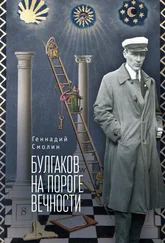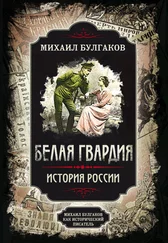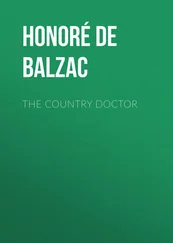‘Laryngitis,’ I muttered automatically, having fallen into the habit of lightning diagnosis.
‘Quite right. “Well,” Liponty would say, “I’ll give you something for it which will put you right in a couple of days. There are some French mustard-plasters. Put one on your back between your shoulder-blades, the other on your chest. Keep them on for ten minutes, then take them off. Off you go and do as you’re told!” ’
‘So the man took his mustard-plasters and went. Two days later he was back at the surgery again.
‘ “Well, what’s the matter now?” Liponty asked.
‘Kosoi said: “Well, you see, Liponty Lipontyevich, those mustard-plasters didn’t do any good.”
‘ “Nonsense!” Liponty replied. “A French mustard-plaster must have done you some good. I suppose you never put it on, is that it?”
‘ “What do you mean—never put it on? It’s on still …”
‘With that he turned round and there was the mustard-plaster sticking to the back of his sheepskin jerkin!’
I burst into laughter, while Pelagea Ivanovna giggled and poked furiously at a log.
‘If you’ll forgive me,’ I said, ‘I think you made that one up! It couldn’t have really happened!’
‘Made it up? Made it up?’ the midwives shouted in chorus.
‘I most certainly did not!’ the feldsher exclaimed bitterly. ‘Our life, in fact, is one long string of incidents like that … Why, things happen here which …’
‘What about the sugar?’ Anna Nikolaevna exclaimed. ‘Tell him about the sugar, Pelagea Ivanovna!’
Closing the stove door and lowering her eyes, Pelagea Ivanovna began:
‘One day I went to a confinement at Dultsevo …’
‘That place Dultsevo is notorious!’ the feldsher burst out, then apologised: ‘Sorry! Do go on, my dear.’
‘Well, naturally I examined her,’ Pelagea Ivanovna went on, ‘and in the birth canal I felt something extraordinary … There were some kind of grains or small lumps … It turned out to be granulated sugar!’
‘How’s that for a story!’ said Demyan Lukich triumphantly.
‘Excuse me, but … I don’t understand …’
‘That’s peasant women for you!’ answered Pelagea Ivanovna. ‘She’d been taught by the local wise-woman. She was having a difficult birth, she said, which meant that the baby didn’t want to come out into the light of day. She would have to entice it out, so the way to do it was to lure it out with something sweet!’
‘Horrors!’ I exclaimed.
‘When a woman’s in labour they give her hair to chew,’ said Anna Nikolaevna.
‘What on earth for?’
‘God alone knows. I’ve had three confinements where the wretched woman was lying there and spitting something out. Her mouth was full of hair or bristles. Apparently they believe it makes for an easier birth …’
The midwives’ eyes sparkled as they recounted their experiences. We sat for long by the fire drinking tea, and I listened entranced. Pelagea Ivanovna described how whenever she had to bring an expectant mother from her village to the hospital, she always let her own sleigh travel behind the peasants’ sleigh, to prevent them from changing their minds on the way and taking the woman back to her mother; how one day, when a woman had a breech presentation, they had hung her upside down from the ceiling to make the baby turn round; how a woman from Korobovo, hearing that it was the practice for doctors to rupture the birth-sac, had cut her baby’s head with a table knife so badly that even a man so renowned for his skill as Liponty was unable to save the child and only just managed to save the mother; how …
The stove door was long since closed; my guests had departed to their quarters. I noticed that the light shone dully for a while in Anna Nikolaevna’s window, then went out. Everything vanished. To the snowstorm was added the impenetrable dark of a December evening, and a black veil shut me off from earth and sky.
I paced up and down my study and the floor creaked under my feet; the room was warmed by a Dutch stove and I could hear a mouse gnawing busily away.
‘No,’ I reflected, ‘I will fight against this Egyptian darkness for as long as fate keeps me here in the wilderness. Granulated sugar … ye gods!’
In my reverie by the light of the green-shaded lamp there arose before my mind’s eye a great university city, in it a teaching hospital, in the hospital a vast chamber with tiled floor, gleaming taps, sterile white sheets, and a lecturer with a sharp-pointed, greying, very wise-looking beard …
A knock heard at such a moment can be alarming, terrifying. I started.
‘Who’s there, Aksinya?’ I asked, leaning over the banisters of the staircase (the doctor’s quarters were on two floors: upstairs my study and bedroom, downstairs the dining-room, another room of unknown function and the kitchen, the abode of Aksinya and her husband, the invaluable hospital watchman).
The heavy bolt rumbled, a lighted lamp appeared and bobbed down below, a cold draught blew. Then Aksinya announced:
‘It’s a patient, a man.’
I was, to tell the truth, delighted. I was not yet ready for sleep and was feeling a little lonely and depressed from the gnawing of the mouse and my own memories. And since it was a man it could not be the worst of all—childbirth.
‘Is he walking?’
‘Yes,’ Aksinya answered, yawning.
‘All right, send him into my study.’
The staircase creaked for a long time. The person coming up was a large, heavily-built man. Meanwhile I sat down at my desk trying hard to ensure that my eager twenty-four years did not peep too obviously from behind my professional Aesculapian persona . My right hand lay ready on a stethoscope, as though on a revolver.
Through the door sidled a figure, cap in hand, wearing a sheepskin coat and felt boots.
‘Why have you come so late in the day?’ I asked weightily, to appease my conscience.
‘Sorry, doctor,’ replied the figure in a gentle, pleasant bass voice. ‘The snowstorm’s a terror. Held me up, I’m afraid. Couldn’t help it, begging your pardon, sir.’
‘A polite man,’ I thought to myself with pleasure. I liked the figure very much, and even his thick red beard made a favourable impression on me. His beard was clearly the object of considerable care and attention. Its possessor not only combed it but even anointed it with a substance which a doctor, even after such a short spell in the country, could identify without difficulty as clarified butter.
‘What’s the trouble? Take off your coat. Where are you from?’
The sheepskin coat fell in a mountainous heap on to a chair.
‘I’ve been suffering from a terrible fever,’ the patient replied with a doleful look.
‘Fever? Aha! Are you from Dultsevo?’
‘Yes, sir. I’m the miller.’
‘Tell me how it troubles you.’
‘Every day at twelve o’clock my head starts to ache, then I seem to get hot all over … It makes me shiver for a couple of hours or so and then it goes.’
‘Diagnosed already!’ rang out triumphantly in my head.
‘And the rest of the time you don’t feel anything?’
‘My legs are a bit weak.’
‘Aha. Undo your shirt, please. Hm … yes …’
When I had finished examining the patient I was delighted by him. After all the incoherent women and frightened adolescents who twitched with horror at the touch of a metal spatula, after that morning’s affair of the belladonna, the miller was a sight for my sore, university-trained eyes.
The miller talked sense. What was more, he turned out to be literate, and his every gesture was indicative of respect for the science to which I was devoted—medicine.
‘Well, my dear fellow,’ I said as I tapped his broad, warm chest, ‘you have malaria. Recurrent fever … Right now we have a whole ward empty. I strongly advise you to come in for treatment. We can keep you under the necessary observation. I’ll start by treating you with powders, and then if that does no good, we’ll give you a few injections. Soon put you right. How about it, then?’
Читать дальше
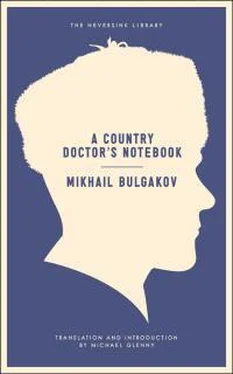
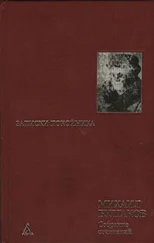
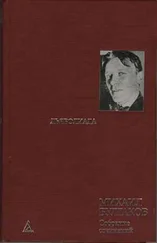
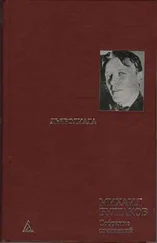
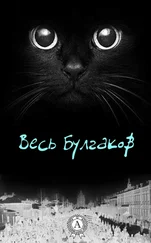
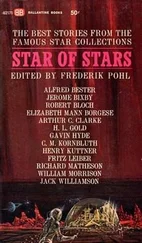
![Михаил Булгаков - Весь Булгаков [litres; сборник]](/books/400110/mihail-bulgakov-ves-bulgakov-litres-sbornik-thumb.webp)


